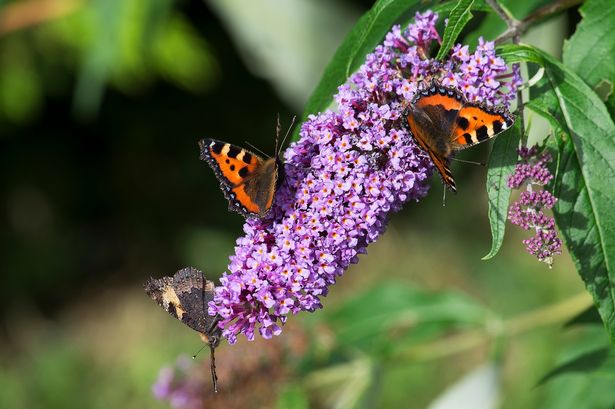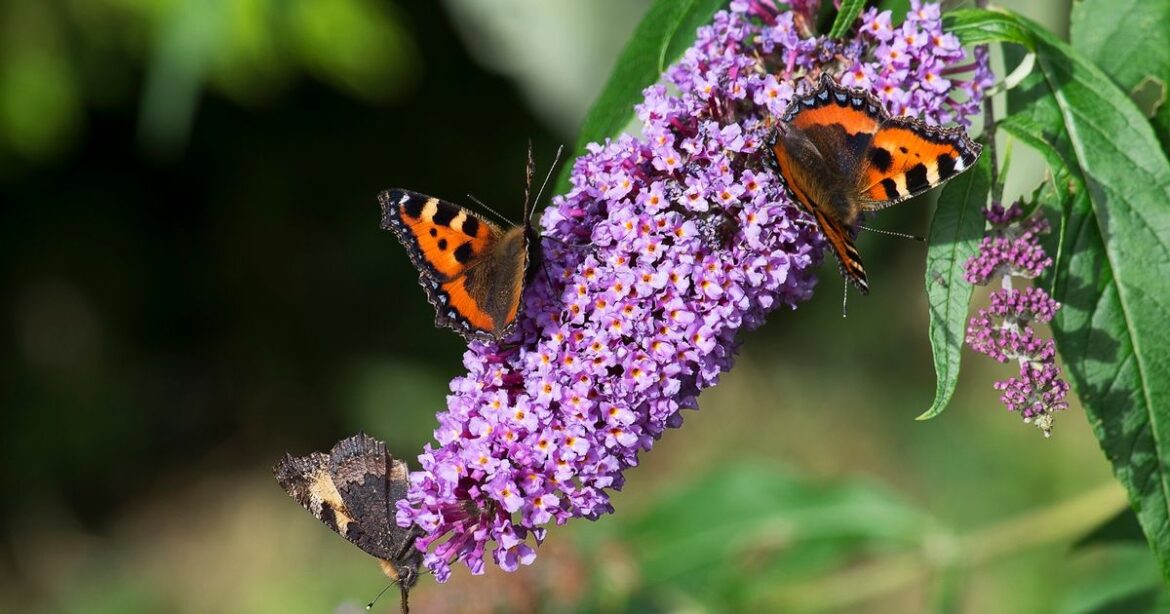Buddleia, also known as the butterfly bush, can be a ‘serious concern for property owners’ due to its ability to grow out of control and damage buildings Buddleia is often praised as a great food source for pollinators – but households have been urged to exercise caution when planting it(Image: Getty Images/iStockphoto)
Buddleia is often praised as a great food source for pollinators – but households have been urged to exercise caution when planting it(Image: Getty Images/iStockphoto)
Most gardeners will have heard all about the dangers of Japanese knotweed, which can cause widespread damage and even reduce the value of a property. But experts have warned that another plant commonly found in gardens can be “just as bad”, despite not being subject to the same laws.
Buddleia is a favourite among gardeners for its colourful and fragrant flowers that are a favourite nectar source for butterflies – earning it the nickname of the butterfly bush. But while it is both beneficial for pollinators and looks gorgeous in the garden, buddleia is considered invasive and can prove to be a “serious concern for property owners” if left to grow out of control, experts caution.
Invasive plant specialists at Environment Controls have warned households that buddleia can work in a similar way to the infamous Japanese knotweed by working its way into cracks in paving and brickwork. Buddleia can grow up to 15 feet tall, more than twice the height of Japanese knotweed, but is not subject to the same strict laws against planting it.
Jennifer Holmes from Environment Controls said: “Both buddleia and knotweed can cause significant damage to building structures, however buddleia is less likely to damage underground infrastructure due to its shallow root system.
“Both are highly invasive and difficult to eradicate, but buddleia (unlike knotweed) can grow in hard to access areas such as roofs, guttering, window sills and walls basically anywhere that a seed lands it can grow. Knotweed on the other hand requires its roots to be on the ground in order to form plants, and quickly spreads.”
Our ChronicleLive Daily newsletter is free. You can sign up to receive it here. It will keep you up to date with all the latest breaking news and top stories from the North East.
The experts have urged homeowners to keep a close eye out for the “aggressive” plant, especially if it is not a controlled garden plant. “Look for it growing out of neglected corners of roofs and walls where it thrives unnoticed, and tackle eradication before it takes hold,” Environment Controls advised.
Similarly, the Property Care Association describes buddleia as “second only to Japanese knotweed” as the most invasive plant in the UK. “In severe cases, buddleia roots can colonise masonry walls making them somewhat unstable and a potential danger as well as blocking gutters and causing rainwater to penetrate walls,” they said.
The London Wildlife Trust has also highlighted the issues that wild buddleia has caused in the capital city, stating that it is considered a destructive weed by Network Rail due to its impact on train tracks, as well as being estimated to cost £1 million a year in the damage it can cause to buildings.
The experts noted: “Indeed, buddleia’s ability to grow quickly and thrive on mortar means that it can grow on buildings and quickly penetrate cracks in brickwork; if unmanaged it starts to undermine the integrity of buildings, including historic and listed structures. For this reason buddleia is considered invasive and in some places very problematic.”
However, the Royal Horticultural Society (RHS) are full of praise for buddleia, writing: “These undemanding, mainly deciduous shrubs, deserve a place in every garden with their spectacular displays of blooms and honey scent. Some selections are compact and can be grown in containers.”
For households with buddleia in their garden, Gardeners World recommends cutting it back hard in late spring to prevent it from becoming too big. “This will also ensure flowering occurs slightly later in the season, meaning there is plenty of pollen and nectar available for butterflies in late summer,” the experts said.


AloJapan.com